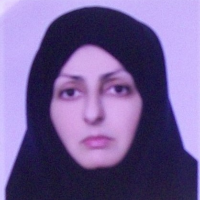A Meta-Synthesis on the Model of Islamic Citizenship Education Based on Empirical Research
With the aim of developing a model for training Islamic citizen, the above-mentioned research method was selected in order to integrate the results of previous researches from previous empirical sources related to the research from library resources as a statistical population and by purposive sampling method, 15 previous studies were selected for final investigation and qualitative content analysis method was used to analyze the collected data and the results showed that Education of Islamic citizen is one of the seven principles: freedom, justice, preservation of human dignity, moderation in behavior, monotheism, health and rationality, which was approved and validated by experts using Kappa index with the amount of 0.87 and the following suggestions were presented:1- Education by developing training courses, teachers with the principles developed in this research to implement and consider in their education. 2- Provide serious participation of governmental and non-governmental sectors, especially NGOs active in the field of social, political, economic, cultural and individual education (such as Islamic Propaganda Organization, Police Force, Municipality, Cultural Heritage and Tourism).3- Provide appropriate social, cultural, economic and political contexts for applying the concept of "Islamic citizenship education" in educational resources and resources.Keywords: Over there Combine, Model, Citizenship Education, Islamic Resources
-
Identification and Evaluation of Components of Spiritual Education Based on the Fundamental Transformation Document of Education
Khaled Alipour, Fatemeh Ahmadbeigi *, Fahimeh Ansarian,
JOURNAL OF SOCIOLOGY OF EDUCATION, -
Explaining the professional competencies of teachers of students with intellectual disabilities in the special education system
Mehdi Davaee*, MAHSHID Izadi, Mandana Faraji
Journal of Exceptional Children, -
Freedom and liberty of thought in the manifestations of rational education of the Quran and the method of teaching based on it
Rahele Aghamohammadi Sendani *, Khosrow Bagheri,
Quranic Studies Quarterly,




